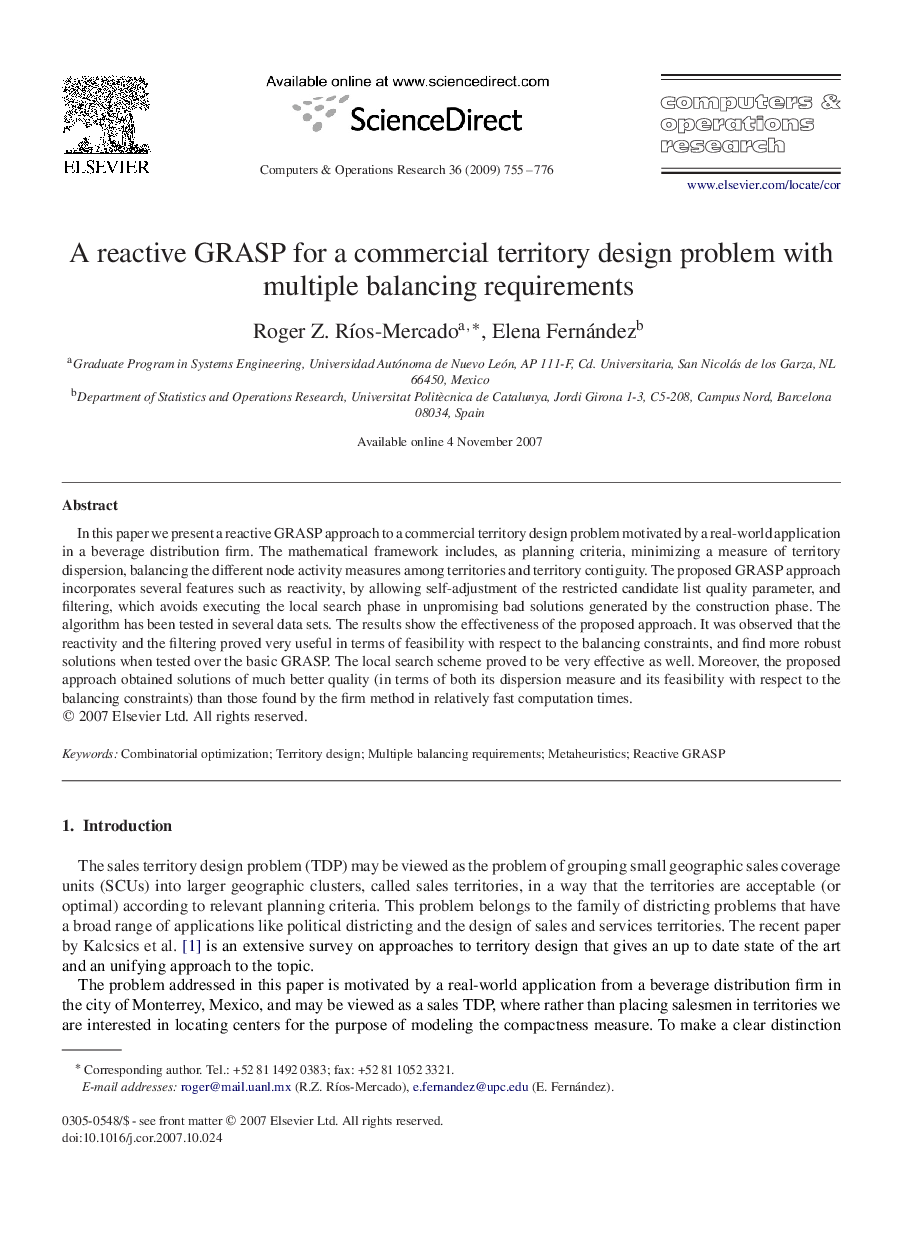| Article ID | Journal | Published Year | Pages | File Type |
|---|---|---|---|---|
| 475363 | Computers & Operations Research | 2009 | 22 Pages |
In this paper we present a reactive GRASP approach to a commercial territory design problem motivated by a real-world application in a beverage distribution firm. The mathematical framework includes, as planning criteria, minimizing a measure of territory dispersion, balancing the different node activity measures among territories and territory contiguity. The proposed GRASP approach incorporates several features such as reactivity, by allowing self-adjustment of the restricted candidate list quality parameter, and filtering, which avoids executing the local search phase in unpromising bad solutions generated by the construction phase. The algorithm has been tested in several data sets. The results show the effectiveness of the proposed approach. It was observed that the reactivity and the filtering proved very useful in terms of feasibility with respect to the balancing constraints, and find more robust solutions when tested over the basic GRASP. The local search scheme proved to be very effective as well. Moreover, the proposed approach obtained solutions of much better quality (in terms of both its dispersion measure and its feasibility with respect to the balancing constraints) than those found by the firm method in relatively fast computation times.
